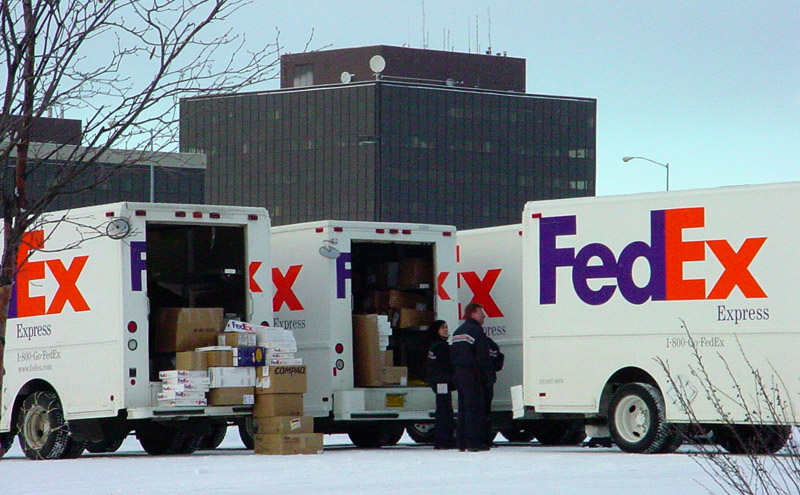
Those familiar white FedEx vans will soon be a more common sight on the streets of London, Paris and Rome after the Memphis-based carrier purchased the Dutch delivery company TNT Express earlier this month for $4.8 billion.
The all-cash deal — the largest in the company’s 44-year history — gives FedEx a stronghold in the important European delivery market. It comes three years after a $6.8 billion offer for TNT by rival UPS was shot down by European regulators, who cited fears that the deal would increase prices and reduce competition.
No Antitrust Concerns
Officials from FedEx and TNT both said they were confident that its deal would be approved. If so, the combined FedEx/TNT would create a strong rival to the German-owned DHL and UPS, which together handle more than 60% of European express deliveries currently.
The deal gives FedEx access to TNT’s air hub in Liege, Belgium, as well as its strong European road platform while TNT will gain access to FedEx’s global capabilities that include major US and Asia-Pacific networks.
Increased Importance of Package Delivery
Package delivery in Europe — and everywhere, for that matter — is expected to gain in importance as the global economy shifts toward an Internet-based model. Because an increasing number of consumers worldwide are buying the products they want online, companies like FedEx, UPS, TNT and others are expected to be much busier in the coming decades.
FedEx’s purchase of TNT may give it more of a foothold in other emerging markets as well, especially Latin America.
Three years ago, FedEx bought Rapidao Cometa Logistica e Transportes SA, which gave the company an inroad into the important Brazilian market. Three years earlier, TNT purchased the Brazilian company Aracatuba, along with its nationwide network that connects Brazil with Argentia, Uruguay, Paraguay, Chile, Bolivia, and Peru. That same year, TNT also bought LIT, an important domestic express provider in Chile. With its purchase of TNT, FedEx now gains all those routes as well.
Purchase Prompted by Strong Dollar
One of the reasons FedEx was able to snatch up TNT for $2 billion less than UPS’s offer three years ago was the growing value of the US dollar vs the euro. When UPS made its play for TNT, the dollar was trading at .7142 to the euro. Today, it is trading at .9211, an increase of 28.9%. Because the dollar is stronger, the purchasing power of US companies such as FedEx is much higher in European markets.
Besides currency fluctuations, another major factor was TNT’s recent financial performance. The company had posted losses in Europe, Brazil and Asia over the past two years and its customer base was shrinking. And in September 2012, its CEO abruptly resigned, leading many to wonder whether it would be acquired by a bigger company or fade into irrelevance.
FedEx had a strong European presence until 1992 when it pulled the plug on an ambitious expansion project on the continent and pulled all of its delivery trucks out of its biggest cities. Since then, the company has slowly built up its European network through a series of smaller acquisitions in the UK, France, Poland and Hungary. But its purchase of TNT is FedEx’s biggest step ever into being a big player in the European express delivery business.
